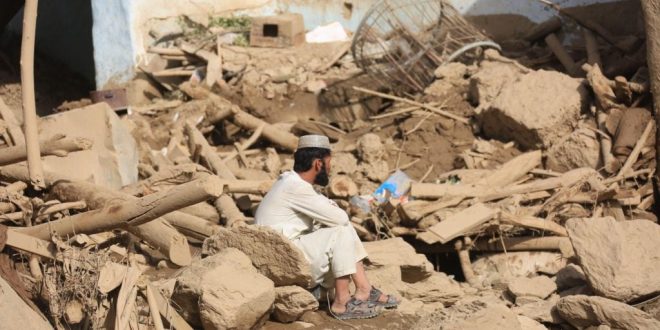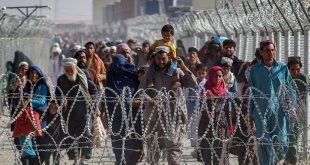AT News
KABUL – Flash floods have wreaked havoc in Afghanistan, causing widespread destruction and loss of life. Beginning late in July 2023, excessive rainfall in central and eastern Afghanistan led to flooding in Kabul, Maidan Wardak, and Ghazni provinces. Over 600 homes were destroyed, and hundreds of acres of farmland were submerged. Tragically, an estimated 61 people lost their lives as a result of these floods, leaving communities devastated.
The impact of these floods extends beyond the immediate destruction. This catastrophe is not an isolated incident but rather part of a concerning trend. Afghanistan has experienced three consecutive droughts since 2020, making the region increasingly vulnerable to flash floods when monsoon rains arrive. As droughts persist, the soil’s ability to absorb water diminishes, exacerbating the flooding problem.
The situation in Afghanistan is further compounded by a lack of infrastructure and leadership to address climate-related disasters. After decades of conflict and instability, the country lacks the resources and governance needed to tackle such challenges effectively. There are only 28 meteorological stations in Afghanistan, insufficient for a geographically complex nation. Moreover, the dissemination of critical data, including flood warnings, has become inconsistent since the Taliban takeover in 2021.
To mitigate the impacts of droughts and floods, Afghanistan urgently requires improvements in infrastructure, such as a more sophisticated network of dams and reservoirs. Maintenance of existing reservoirs, many of which are clogged with sediment, is essential to prevent frequent floods and droughts.
Early warning systems are also crucial for disaster preparedness. Real-time measurement of water levels in rivers and water bodies can identify areas at risk, allowing people to be prepared. However, Afghanistan currently lacks these vital systems.
Climate change-induced disasters have become significant drivers of displacement in Afghanistan, affecting vulnerable communities, including women and children. Women, who often bear a disproportionate burden in emergency situations, face added challenges due to cultural norms and restrictions imposed by the Taliban.
The future looks bleak for Afghanistan’s climate resilience, as the Taliban’s regime is ill-equipped to deal with climate impacts and faces international sanctions. Projects aimed at addressing climate change impacts, funded by international donors and UN agencies, have been suspended due to these sanctions. Afghanistan’s inability to participate in international forums and attract funding further hampers its climate adaptation efforts.
 Afghanistan Times
Afghanistan Times




